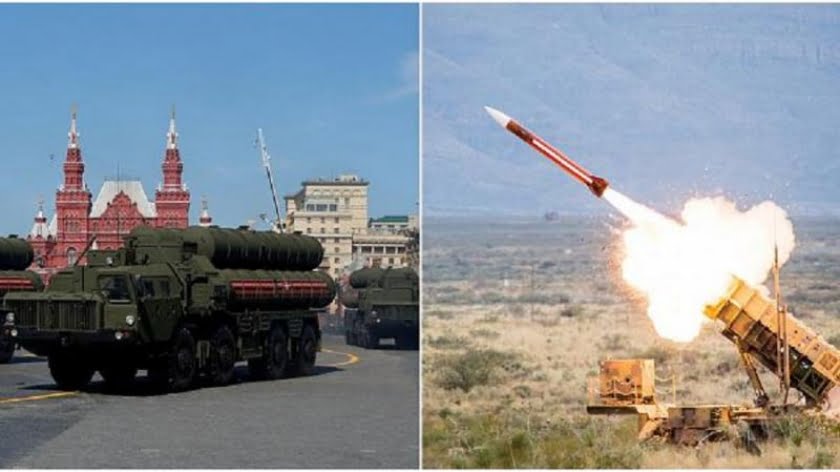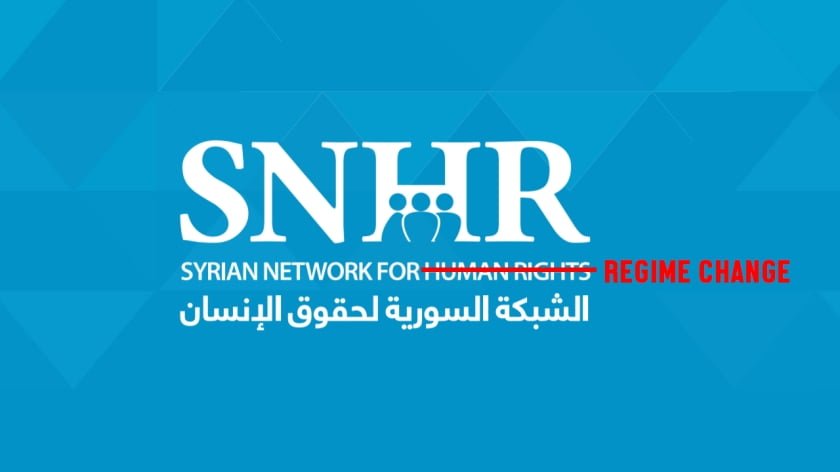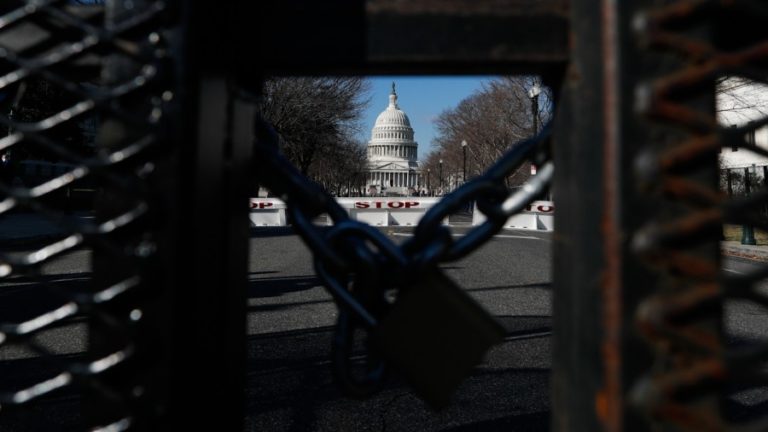Sudan: Yesterday’s News There, Tomorrow’s Nightmare Everywhere Else
While the world waits for Boris Johnson to be sacked and Emanuel Macron to be consumed by self-inflicted love bites, it is distracting itself with the events in Sudan. Not because anyone cares about the country or its people, but because it is a useful flag-waving exercise.
Military coup! Democracy violated! Turmoil in Africa! Protesters shot dead! All the elements are there to satisfy the Western sense of superiority.
If only the Sudanese were developed like us, so the mantra goes. Western democracies don’t suffer these sorts of things. Unless you count the military coups against democratic governments the West has sponsored (Chile, Turkey), the conflicts it has fomented and kept going to suit its professed interests (Ukraine, Yugoslavia) and the use of force against peaceful protest all over Europe (Northern Ireland, France, you name it.
Everyone can take something out of the troubles in Sudan to suit their own position—sooner or later. Until they get bored, and move onto some other distraction. And that is exactly why the problems are there, as in many other cases.
Already the circus is moving on, unable to see a convenient ending or a simple narrative – which news, rather than life in the countries which consume it, is supposed to provide. But there are signs that the conflict in Sudan will have more profound an impact than yet another domestic punch-up in some other faraway place, one which most have never heard of.
In the 1980s the West couldn’t grasp that all the sides in the Lebanese Civil War were actually fighting for Lebanon, from their own perspectives. That conflict garnered more attention than was healthy for anyone as a result of the challenge to the standard narrative it presented.
The Sudan conflict is doing the same, and will continue to do so. The story isn’t going anywhere, precisely because it will take a lot of effort, often unwelcome effort, to understand what it is and what it means for everyone else.
Sudan will remain relevant because those flags everyone is waving will blow dirt in their faces. Everything is the wrong way round and not going to plan. What you think you are seeing is being eaten away by its internal contradictions, and every country will be affected by the realisation that you can’t live on lies forever.
Black Africa
Sudan is big and, supposedly, bad. Its ancient culture and historic importance are of no consequence when set against its status as Third World, Muslim and usually a military dictatorship.
It is all the things nobody in the West wants to be, because they only want to look at the things they don’t like. If they looked at what they liked, they would have to respect the country and its people, which would have political and financial consequences they don’t want to have to contemplate.
If Sudan does take what is regarded as a positive step, it needs to be treated as a progressive and liberal country. This means it needs to be listened to as a partner, not told what to do.
It also means giving it lots of Western aid to ensure it continues along this progressive path, and defence commitments to stop others taking that away. It also means respecting the results of elections, even when the outcomes don’t suit partners and sponsors.
No one really wants to do any of these things – particularly as modern Sudan was previously a British-Egyptian Protectorate. Its 1956 independence was a delayed consequence of the Egyptian Revolution of 1952, which was itself a protest against continuing British dominance of Egypt. “If you ignorant people want your own country, you are on your own, so come up to our latest standards or be damned”.
Such a large country could have been a major force in Africa, an important diplomatic and material partner. Khartoum could have been spoken of in the same breath as Istanbul, or Tehran in the days of the Shah.
But it was left to its own devices, always at the bottom of the queue, always having to look over its shoulder at what the rest of Africa was doing. Is it any wonder there are on-going problems today?
Millions of the Few
Sudan has suffered from civil war since it achieved independence, either open or underground. This is usually ascribed to political, linguistic and religious fault lines within the population.
In the developed world, multiculturalism is rightly considered a virtue. The more open and tolerant we are to other religions, ethnicities and cultures, the better.
In ideal circumstances we achieve something like the great city of Birmingham – possibly the most diverse city in the world per capita, in which people from all over the world speak with the same local accent, and share the same experiences and facilities, whilst remaining part of the groups they originated from.
But in the developing world, such diversity is either glossed over or considered a red flag. The West doesn’t care about multiculturalism; it cares about pretending it is better than anywhere else. The same factors lauded in the West are considered dangerous in another country, because the locals don’t have the sophistication Westerners do, they can’t behave in the correct way.
South Sudan was carved out of Sudan in 2011 as an ostensible result of longstanding disputes between the Arab north and black African south, the sort of conflicts Western countries think they can solve, but refused to solve here. But we know who carved it up and under whose instructions.
The oil was probably a bigger reason, but even if you believe the official line, the independence has had no effect – civil war continues unabated in South Sudan, even with the enemy supposedly gone.
So the point was to put the rest of the world on notice. Sudan was under a brutal military dictatorship at the time, and Islamic law was the law of the land, if anyone ever followed any laws. If anyone else wanted to go down the same path, nobody would save them.
There are literally hundreds of other countries which could be carved out of existing ones, each one with no less a claim to statehood than South Sudan. To retain the support of the international community, everyone has to play by the common rules – not the actual ones, such as international law and the Universal Declaration of Human Rights, but the latest Western economic and social fads, the ones reflected in the successive waves of Western architecture derided as monstrous gimmick within a generation.
Sudan did its best, helped to an extent by Western sanctions. When the Bashir regime became too murderous, and the ones with the means to remove it weren’t getting any benefit from keeping it there, Sudan became one of the new-fangled multiparty civilian democracies, and a secular state to boot.
Now the military have taken over again, in the same old pattern. So maybe it wasn’t a democracy after all, but a monstrous carbuncle on the face of an old friend, if it ended that way. After all, this is what protestors usually forget, when they start waving those flags of convenience to hide their prejudices behind.
The Song Not the Singer
Sudan is one of many countries with a history of coups and counter-coups. These are almost always presented as “our side”, i.e., democracy, being eradicated by “them”, i.e. the faceless military, who answer to themselves and not the people, and have the means to repress everyone who doesn’t like it.
In most cases however military takeovers occur because democracy hasn’t delivered the goods for the people it claims to represent. Yes, you get some ideologically-driven coup, such as that of the Greek Junta, which subverted the election of a socialist government before it could happen. But usually they happen because “rule by the people” has become rule by the few, and the people don’t like it.
The Bashir government was genocidal and maintained power by repression and buying off crony groups. But the civilian government which followed it fell because it had to do the same in the real world, but could only be different by buying different friends, who were not only unpalatable to the military but many of the population.
Prime Minister Abdalla Hamdok, a highly-respected civilian administrator, was selected to lead the transition to democracy because he‘s an independent technocrat. No axes to grind, no offence to anyone, capable of gaining the country support – he was asked to be a king, in effect.
Instead he became the tool of the Sudanese Professionals Association, and other groups of the educated elite, who began installing the traditional “dictatorship of the bourgeoisie” which democracy, despite its unassailable superiority as a system, often becomes. Universities were purged of staff, public utilities and international companies infiltrated by placemen.
You always know the military will do this, and you always know a dictatorship and a one party state will do it. Whatever the reasons behind it, it shouldn’t happen in a democracy unless those purged are trying to undermine the democratic system, which none of them had the opportunity to do.
A democracy is supposed to provide everyone with a voice and an opportunity to influence things. The actions of the Hamdok government, itself transitional as it is supposed to pave the way for full elections, replaced one dictatorship with another, which didn’t listen or consult either. It also provide more fuel to the argument that the more educated Arabs are still ripping off the Africans, who are their equals in a democracy, despite the longstanding cross-continental division between “white” Arab and “black” African/native populations.
Last year’s military coup, which halted this process, was an attempt to maintain the original course of the transition to democracy, as the military saw it. The same thing has happened in Turkey several times, in Portugal in 1910 and 1926, and most famously in Nigeria in 1983, when the overthrow of a civilian regime which had used its power to enrich a few and corrupt the rest was greeted with widespread relief.
The coup was condemned internationally by those who support the principles of liberal democracy but aren’t interested in whether it maintains them or not. The Sudanese military invited Hamdok back to lead a joint military-civilian administration, to ensure the transition to democracy proceeded in a proper way, but he has had to resign because his support base won’t accept his deal. The military also wants civilian rule which lives up to its billing, but the supporters of the failed civilian government won’t accept that, wanting purely civilian rule in any form, at any cost, as long as they can be the ones doing the stealing.
If you are going to have rule by the few, it is better that you don’t pretend to have a Potemkin democracy. Let the civilian supporters set up their own army instead and fight it out – or is that exactly what they are doing, by proxy?
No Plot Left to Lose
Many countries have a story to tell about democracies having all form and no substance. Such governments are common in developing countries – they have elections in which several parties complete, but the result is dictated elsewhere, the government has no public accountability and change can only occur if protestors are backed by an external country with a bigger army and budget.
Even in sophisticated Western democracies you get the same complaints. West Germany ended up with urban terrorism because there was no parliamentary opposition during Kiesinger’s “Grand Coalition”. All over Europe you have Five Star, Podemos, Syriza and BoJo’s Brexit Clown Show due to people feeling that democracy isn’t delivering the representative and responsible governments, there to answer to the public not the other way round, it is supposed to.
If anyone is actually interested in resolving the crisis in Sudan, they will have to ensure a genuinely accountable democracy is installed, not a civilian scam guaranteed by a foreign army bigger than Sudan’s. This story is news because this is a golden opportunity, thrust in our faces, for the international community to show it still knows how.
Does it? Does anyone now know how to take the steps necessary to make democracy work and defend it? That is not just Sudan’s problem but everyone’s. We are in for many more coups against democracy, such as Brexit, and counter-coups in the form of imposition of the will of the revanchist few, if those who pretend they uphold democracy demonstrate they don’t even know what that means, or how to create it.







